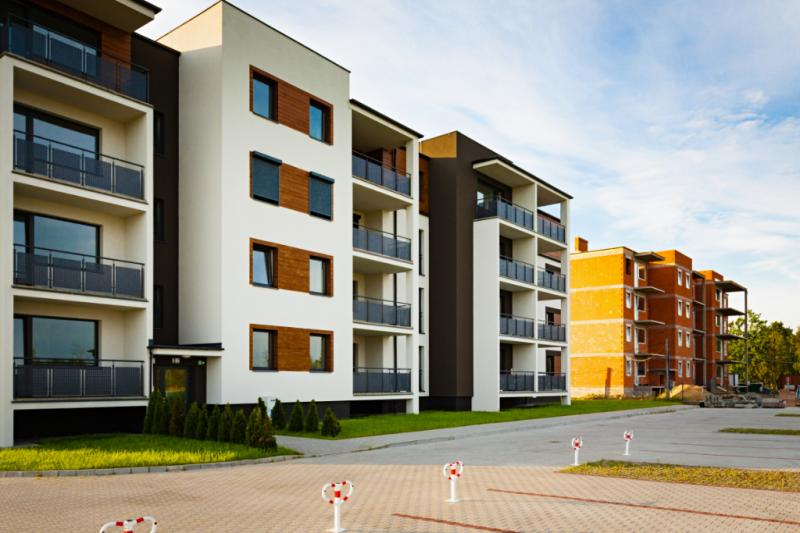5 Tips To Make The Right Apartment Investment

Investing in real estate can be a strategic way to diversify your investment portfolio and comes with various benefits. Real estate, in general, functions as a tangible asset with multiple revenue streams and numerous tax advantages.
Single-family homes and commercial spaces are likely to come to mind when considering alternative investment options. On the other hand, apartments are a great option, and there are several ways to begin investing in one.
Is An Apartment A Good Investment?
It can be a lucrative endeavor once you decide to invest in an apartment with limited supply and high demand. Additionally, the insurance, advertising, property management fees, and more are tax-deductible. You can even sell the apartment for a profit in the future.
If you want a slow but steady increase in the value of your investment portfolio while also having a monthly income stream, investing in an apartment building might be a good choice.
Although the profits may be substantial, you'll have more tasks to manage along with the monthly costs, including extra expenses such as repairs. If you have a lot of vacancies or if your tenants don't pay their rent on time, your profits will suffer.
When you want to make the right decisions with your investments, it's best to work with a reliable professional, especially regarding the real estate investment tax deferment process and managing your portfolio with intelligent property exchange strategies. With the Peregrine Private Capital 1031 exchange services, professionals will guide you along the way in reducing labor costs, diversifying your investments, and increasing your after-tax cash flow. If you want to learn how the process works, watch this video:
Useful Tips When Investing In An Apartment
Once you decide to diversify your real estate investment portfolio by investing in an apartment, consider it a significant commitment. Managing an apartment can be difficult and time-consuming. Here are some helpful hints to consider to make the investment process more manageable.
- Find Out If Owning An Apartment Is Right For You
Make sure that investing in real estate, specifically apartment buildings, is right for you, whether you already have a diverse real estate portfolio or this is your first foray into real estate investing. You must carefully consider several factors, including time and cost.
The initial capital investment and the ongoing cash flow matrix associated with managing multiple tenant units at a time are typically included in the cost of owning an apartment building.
Another factor to consider when managing an apartment building is that certain issues, such as tenant turnover, maintenance issues, and leasing paperwork, necessitate more involvement and management.
Before you dive headfirst into this new endeavor, you need to make sure that both your schedule and finances are ready to accommodate a significant change.
- Learn About The Different Types Of Apartment Buildings
Apartments are available in various sizes and shapes. In the city, you might find a modern multi-story building or a rehabilitated mansion divided into several units, among other things.
Since you have a variety of apartment buildings to choose from, you need to determine what you can afford. Doing so will help narrow down your options during the selection process. Identifying the types of apartment buildings will ensure the best return on investment for your available budget. Potential investors are frequently faced with a difficult trade-off between the purchase price and the overall cost of repairs and renovation.
Apartments generally rise in class as they grow in size, quality, newness, and the number of amenities available. Affordably priced older apartment buildings with fewer amenities are available. Even so, if you're thinking about buying one, keep in mind that there may be hidden costs, such as property improvements and repairs.
You're likely to encounter some common construction problems in apartment buildings during the selection process. Old plumbing, lead paint, asbestos, and deteriorating roofing are all associated with costly repairs. Consider employing the services of a professional to conduct a thorough inspection of an apartment building you're considering purchasing to ensure there are no hidden issues that could impact your budget.

- Identify A Property
After you've decided on the type of apartment building you want to buy, the next step is to look for suitable properties. You have the option of searching for properties on your own, enlisting the help of a professional, or combining the two.
Consider getting a membership with a local real estate investing club or association if you want to search for deals independently. Doing so will allow you to network with other professionals, allowing you to connect with other investors who might know about available properties for sale. On the other hand, if you work with real estate agents, especially those in commercial real estate, you'll gain valuable insights while accessing several listing services. In most cases, they often have access to listings from commercial brokerages. On the other hand, commercial commission fees can fetch a slightly higher price than residential commission fees.
- Carry Out Your Due Diligence
If you're going to invest independently, you'll gain all the profits. Nevertheless, it'll require significant effort on your part. At this point, it's not a passive income-generating real estate investment. With this in mind, you need to make an effort to actively engage with your investment by going through several elements before investing.
Make an effort to conduct a thorough analysis of the deal before deciding to offer. If you're looking to buy an apartment, you'll want to think about things like the location, amenities, building condition, and the number of units available. These factors will help you determine the amount of rent you can charge tenants and how much you'll be spending on the necessary repairs and renovations.
Knowing the building's overall condition will help you determine how frequently repairs will affect your monthly cash flow. Furthermore, when considering factors such as occupancy rates, rental yield, or resale value, the location of the property you're planning to invest in will point to local socioeconomic factors that can influence profitability in the long run.
Once you're serious about a particular apartment building, consider hiring an inspector to check out the building carefully. You should also obtain copies of leases, tax returns, and any other legal documentation from the previous owner to pinpoint any hidden problems. Some of the crucial requirements you need to research may include the following:
- A financial audit report with a profit and loss statement
- An evaluation of the property's overall condition is usually based on a third-party report after examining the property's current condition.
- A market report that helps determine the estimated occupancy level of the property.
- The lease audit and rent roll are examined for various aspects of leases, including billing schedules and unpaid or late rental payments.
- An environmental site assessment examines any hazardous chemicals and other possible contaminants.
- An appraisal of the property's market value
- A site survey and title report ensure that the property is free of legal claims and usually necessitate a site survey to confirm the property's boundaries.
Even if all of the documents appear to be in order, you should still visit the property and walk around. You need to look out for any potential issues and improvements you could make.
If you're going to invest in an apartment, don't forget to evaluate the opportunity cost of the time necessary to manage one. Since this type of investment will require a hands-on approach, especially when dealing with tenant turnover, maintenance, paperwork, and repairs, to name a few, you'll find that you no longer have time to pursue other investment opportunities. In such cases, you may want to hire a property management company, but you need to consider the extra expense of doing so.
- Make A Proposal, Secure Financing, And Close The Deal
Once you're serious about an apartment building, you're already thinking about making a deal after going through meticulous research. You can appraise the value of an apartment by utilizing market comparisons, potential income, and the replacement approach. Most investors use this method to determine how much a similar building would cost to construct.
Even though properties with five or more units are unfit for government-backed loans, commercial loans are typically procured from conventional and private lenders.
You must be prepared when lenders demand interest and cash reserves and when they prefer properties with high market potential and rental yields.
Nonetheless, commercial lenders are more likely to prioritize the property's earning ability and less on your finances and creditworthiness.
Final Thoughts
If diversifying your real estate investment portfolio is one of your main goals, investing in apartments may be a worthwhile endeavor due to the long-term benefits it offers. If it's your first time, the entire process may seem like a challenging task. Dedicating time and effort to learning everything about apartment investing, along with the help of these valuable pointers, will go a long way towards ensuring you'll have a worthwhile investment that can serve as a source of income for years to come.
More to Read:
Previous Posts:











